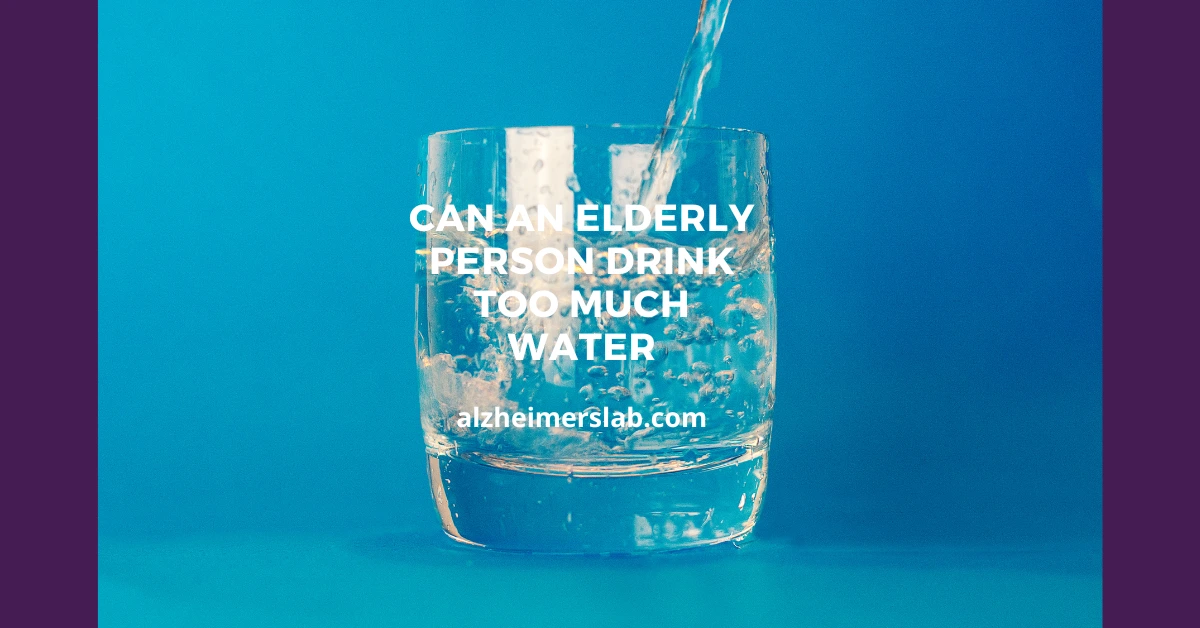Can an Elderly Person Drink Too Much Water?
As we age, our bodies go through several changes that can impact our overall health and well-being. One aspect of health that is often overlooked is hydration. Water is an essential nutrient that is necessary for many bodily functions, including digestion, circulation, and temperature regulation. However, can an elderly person drink too much water? Let’s take a closer look.
What is the recommended daily water intake for elderly people?
The amount of water an elderly person needs to drink each day can vary depending on a variety of factors, such as weight, activity level, and health status.
However, as a general rule, the National Academies of Sciences, Engineering, and Medicine recommends that women aged 51 and over should consume about 9 cups (2.2 liters) of water per day, and men aged 51 and over should consume about 12 cups (3 liters) of water per day.
These recommendations are based on average needs, and individuals should consult with their healthcare provider to determine their specific hydration needs.
What are the risks of overhydration in elderly people?
While staying hydrated is important for overall health, overhydration can be dangerous, especially for elderly people. Overhydration, also known as hyponatremia, occurs when the body’s sodium levels become diluted, causing fluid to shift into the cells. This can lead to swelling and can be life-threatening in severe cases.
Elderly people are at a higher risk of developing hyponatremia due to a variety of factors. One factor is that as we age, our kidneys become less efficient at removing excess water from the body. This means that older adults are more susceptible to fluid retention, which can increase the risk of hyponatremia.
Additionally, many elderly people may take medications that affect their fluid balance, such as diuretics or blood pressure medications. These medications can cause the body to lose fluids and electrolytes, which can increase the risk of hyponatremia.
What are the signs and symptoms of hyponatremia?
Hyponatremia can cause a variety of symptoms, including headache, nausea, vomiting, confusion, seizures, and coma. Elderly people may be more likely to experience these symptoms, as they may have underlying health conditions that make them more vulnerable to fluid imbalances.
Additionally, some of the symptoms of hyponatremia, such as confusion and cognitive impairment, can be mistaken for symptoms of dementia or other age-related conditions. Therefore, it is important for caregivers and healthcare providers to be aware of the signs and symptoms of hyponatremia in elderly people.
How can you prevent overhydration in elderly people?
Preventing overhydration in elderly people requires a multi-faceted approach. First, it is important to ensure that elderly individuals are consuming the appropriate amount of water each day.
As mentioned earlier, the National Academies of Sciences, Engineering, and Medicine recommends that women aged 51 and over should consume about 9 cups (2.2 liters) of water per day, and men aged 51 and over should consume about 12 cups (3 liters) of water per day.
However, it is also important to take into account factors such as activity level and health status when determining an individual’s specific hydration needs.
Second, it is important to monitor fluid intake and output in elderly people. Caregivers should keep track of how much water an elderly individual is consuming each day, as well as how much urine they are producing.
If an elderly person is drinking too much water, they may be producing more urine than usual. Additionally, caregivers should be aware of any changes in an elderly person’s weight, as sudden weight gain can be a sign of fluid retention.
Finally, it is important to be aware of the medications that elderly people are taking and how they may affect their fluid balance. If an elderly person is taking medications that affect their fluid balance, their healthcare provider may need to adjust their dosage or switch them to a different medication.
In addition to these preventative measures, it is also important to be aware of the signs and symptoms of hyponatremia and to seek medical attention if they are present. If an elderly person is experiencing symptoms such as confusion, seizures, or coma, it is important to call 911 immediately.
It is also important to note that overhydration is not the only concern when it comes to elderly people and hydration. Dehydration is also a common issue, especially among elderly individuals who may have difficulty drinking enough fluids or who may be experiencing conditions that increase their risk of dehydration, such as diarrhea or fever.
Therefore, it is important to monitor both fluid intake and output in elderly individuals and to take steps to prevent both overhydration and dehydration.
Conclusion
While staying hydrated is important for overall health, it is possible for elderly people to drink too much water, which can lead to hyponatremia and other health concerns.
Preventing overhydration in elderly individuals requires a multi-faceted approach, including monitoring fluid intake and output, being aware of medication use, and seeking medical attention if necessary. By taking these steps, we can help ensure that elderly individuals remain healthy and hydrated.
Now, let’s hear from you! Have you or a loved one experienced issues with hydration in old age? What steps have you taken to prevent overhydration or dehydration? Let us know in the comments section below.

